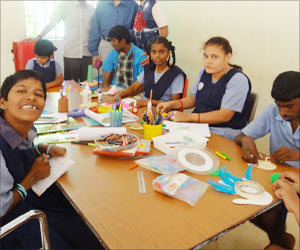
‘Understanding the well-being of dental faculty is the key to future workforce development.’
Tweet it Now
The survey assessed several factors related to respondents’ well-being, including personal and work-related burnout, resiliency, and loneliness.A total of 216 faculty members from the four schools completed the survey, which also included questions related to joy and stress as well as demographics.
While scores were not significantly worse compared to results from a pre-pandemic study examining dental faculty burnout at U.S. dental schools in the Northeast, rates of burnout and loneliness remained higher for dental faculty than the general public.
The survey compared numbers for dental faculty against the public from a study of the public completed in April 2020, where the prevalence of loneliness was reported at 23%.
“Understanding provider well-being is an intersection of passions for me. As a clinician and ethicist as well as an equity and belonging practitioner, I feel it is vitally imperative that we understand why some providers excel despite setbacks and others find it difficult to thrive after challenging circumstances,” said Smith, who is director of diversity, equity and inclusion and the ethics curriculum and an associate professor at VCU School of Dentistry.
Advertisement
On a scale of one to five, with five indicating extreme burnout and one indicating no burnout, average personal burnout was 2.7 and work-related burnout was 2.8 among respondents.
Advertisement
Resilience was also measured on a scale of one to five with higher scores indicating increased resilience. The average resilience score was 3.6 and did not differ significantly among groups.
Loneliness was measured by the sum of responses to three items with a combined scale of nine, with responses totaling six or more being considered lonely.
The average reported loneliness was 4.8; however, individuals who lived alone had an average loneliness score of 7.05. Nearly one-third of responding dental faculty were considered lonely, according to the study’s measurements.
Respondents were also asked to report on aspects of their job that brought them the most joy as well as the most stress.
Full-time faculty reported administrative responsibilities as the most stressful part of their job, whereas part-time faculty reported clinical care as most stressful. For all respondents, the most joy came from teaching.
In light of the ongoing pandemic and higher-than-average rates of burnout and loneliness among dental faculty compared to the public, Smith and his colleagues recommend that dental schools continue to provide education, training, and incentives designed to reduce burnout and increase resilience among faculty.
Additionally, researchers also recommend future studies look more closely at the factors associated with varying levels of well-being among different demographic groups.
However, more and more, we are learning and understanding that resilience is as much an organizational value as it is personal. Strategic planning, professional development, institutional culture, and climate, as well as DEI initiatives, are all interconnected with organizational and personal resilience.
Source-Medindia













